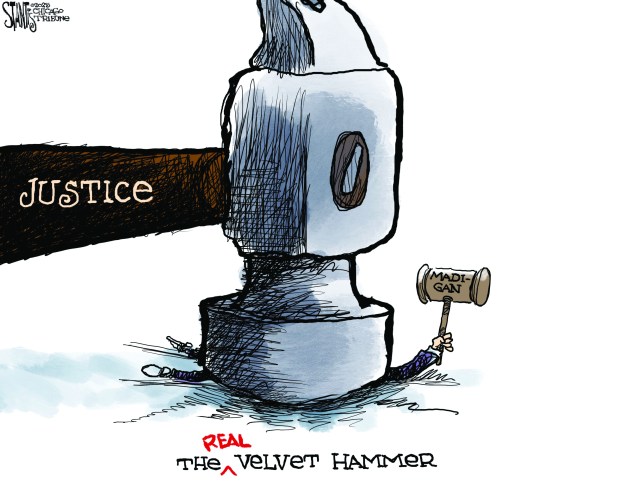President Joe Biden may be old and forgetful of some dates and details. But about some really big and critical issues facing America and the world, he has been sharp as a tack and consistently focused and engaged.
He has been a most consequential president in pushing significant money to tackle the mounting threat of climate disruption. Likewise, he is correct that it is in America’s critical national security interest to honor our NATO alliance and to aid the Ukrainian people against Russia’s aggression.
Earlier this month, the Senate came close to passing a long negotiated bill — a $118 billion bipartisan package to send aid to Ukraine and Israel, coupled with significantly increased funding for heightened security along our border with Mexico. This bill was painstakingly negotiated by Republican and Democratic senators, and it gave Republican leaders almost everything they had wanted.
It died when Donald Trump made it clear that he did not want to give Biden any win and that he wants problems at the border to continue so that he can use the “chaos” as a key campaign issue. He plans to hammer Biden on the problem that he, Trump, has cynically sustained. Good of the country be damned.
Two weeks ago, the Senate backtracked and passed a $95 billion foreign aid bill to support Ukraine and Israel and humanitarian aid to Palestinians and others. Senate Minority Leader Mitch McConnell and 21 other Republican senators joined the Democrats in passing this bill. But House Speaker Mike Johnson refused to even bring the Senate bill to the House for a vote.
Trump has commanded there be no vote, and Johnson is an obedient servant. Again, if doing something makes Biden or the Democrats look effective, then the action must be killed, even if it’s passage of critical legislation that is needed to help the Ukrainian people hold off Russian aggression. Forget about the good of our nation or the international order.
And recently, Trump remarkably went even further by using a familiar page from his playbook of attacking NATO. Our support for NATO has been a bipartisan lodestar across the decades. Rather than respecting that history and the power of this alliance, Trump fixates on the fact that some NATO members are not living up to their commitment to raise their defense spending to at least 2% of their gross domestic product. He misses the forest and obsesses about one little tree.
Trump loves to make headlines, and he got them by stating that the United States will not come to the aid of these negligent NATO nations if they are attacked, saying, “‘You didn’t pay? … I would not protect you. In fact, I would encourage (the Russians) to do whatever the hell they want.”
Though Trump has stated that if elected he might be a dictator for only one day, he already is controlling and killing critical federal legislation. He is facing 91 indictments and massive financial penalties, and he kills border bills and foreign aid to Ukraine and threatens our oldest and closest allies. He does this because he is enabled to do it by leaders who place their fealty to him over the good of the country and the world. It must all be part of “making America great again.”
To understand where Trump is coming from, it is important to remember that his book, ghost-written, is titled “Trump: The Art of the Deal.” Trump, the product of a hyper-business family involved in New York real estate development, sees reality through strictly business, financial and “deal” terms. For him, deal-making involves winners and losers, and he hates to lose.
Trump’s attention is always transactional; every issue — such as domestic or foreign policy — is a deal. He has no interest in, or sense of, history, so he never imagines that it might be important to think of impacts years, decades or centuries into the future. Relationships are transactional and rooted in his calculation of short-term gain. The focus is immediate — his next trial or his upcoming election. There is no evidence that Trump ever thinks about how future generations might fare.
Trump’s niece, Mary, a clinical psychologist, agrees with others that Trump has a narcissistic personality disorder. So it should not be a surprise that a Trump-first vision of reality would cash out into an “America First” agenda that is disdainful of worrying about our allies or participating in the broader world community.
George Washington’s warning in his farewell address to the nation at the end of his two terms as our first president might be instructive for us. In his eight years as president, he saw the corrosive energies of political leaders’ lust for power. He warned of the potential for “frightful despotism” and parties creating “disorders and miseries” that gradually “incline the minds of men to seek security and repose in the absolute power of an Individual.”
Washington was trying to warn us about men such as Trump who seem to love autocratic rule.
William French is an associate professor of theology at Loyola University Chicago with an emphasis on global security, environmental ethics, and war and peace studies.



